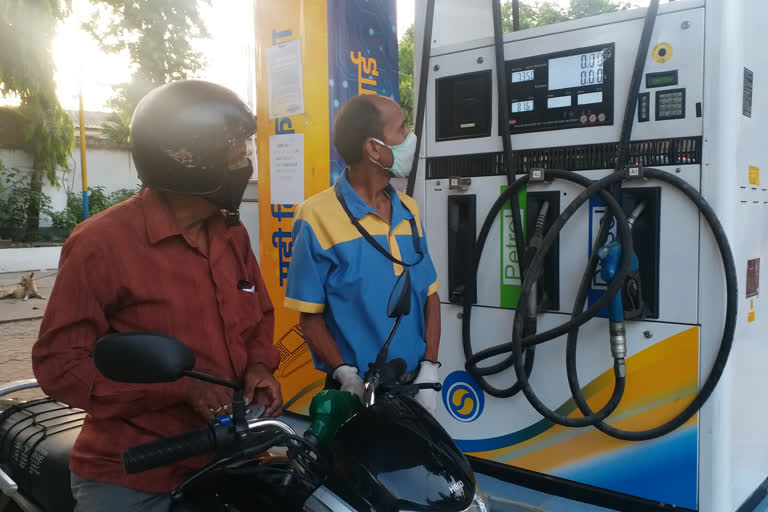New Delhi: The economic crisis triggered by the Covid-19 pandemic and subsequent pressure on revenues may again push the Centre to raise excise duty on petrol and diesel.
Sources indicated that another Rs 3-6 per litre increase in excise duty on petrol and diesel may come soon if the government felt the need to mobilise more resources to finance additional economic recovery packages to fight Covid-19 related disruptions.
This level of increase could provide government additional revenue to the tune of Rs 60,000 for full year. In the balance period, about Rs 30,000 crore could be mobilised.
An internal examination to look at duty structure on the two products is on and exact timing of the announcement may be finalised soon, sources indicated.
Government wants that any duty hike on petrol and diesel should not result in an increase in the retail price of the two products as it would not be popular with the consumers besides the increase could have inflationary implications on the economy.
Experts said that current juncture would be ideal for an excise duty on petrol hike as petrol and diesel prices have not been revised for the past almost a month even though global crude prices have softened and reached about $ 40 a barrel from a month ago high of over $ 45 a barrel.
Read more: Amazon wins interim relief; Future-Reliance deal put on hold
In March, the government had taken Parliamentary approval to raise special additional excise duty on petrol to Rs 18 per litre and on diesel to Rs 12 per litre but did not change the levy then. In May, it raised special additional excise to Rs 12 on petrol and to Rs 9 on diesel. This leaves the government with the space to increase excise duty on petrol by a further Rs 6 per litre and on diesel by Rs 3 per litre. This option is being examined now.
For consumers, any further increase in duty should not impact much as retail prices may be left unchanged or marginally increased as lower oil prices would allow for absorbing any increase in price.
However, a further increase in taxes on fuel would make the product most taxed globally. The current taxes account for close to 70 per cent of the price of petrol and diesel. With any further increase in duty, this could reach 75-80 per cent level.
Higher retail price is not an option for the government at this juncture as it could push inflation.
With increased excise duty on petrol and diesel, the government is already set to increase in oil revenue by close to Rs 1.75 lakh crore this year. This is in addition to over Rs 2 lakh crore it collects from petroleum products as annual excise revenue.
Centres fiscal situation is stretched this year due to Covid-19 related disruptions and additional commitments to states over GST compensation shortfall. The fiscal deficit is already estimated at a high of 8 per cent of GDP for FY21.
(IANS Report)



